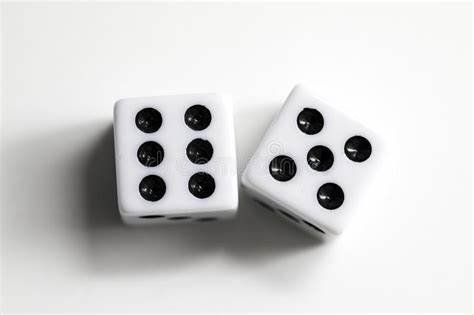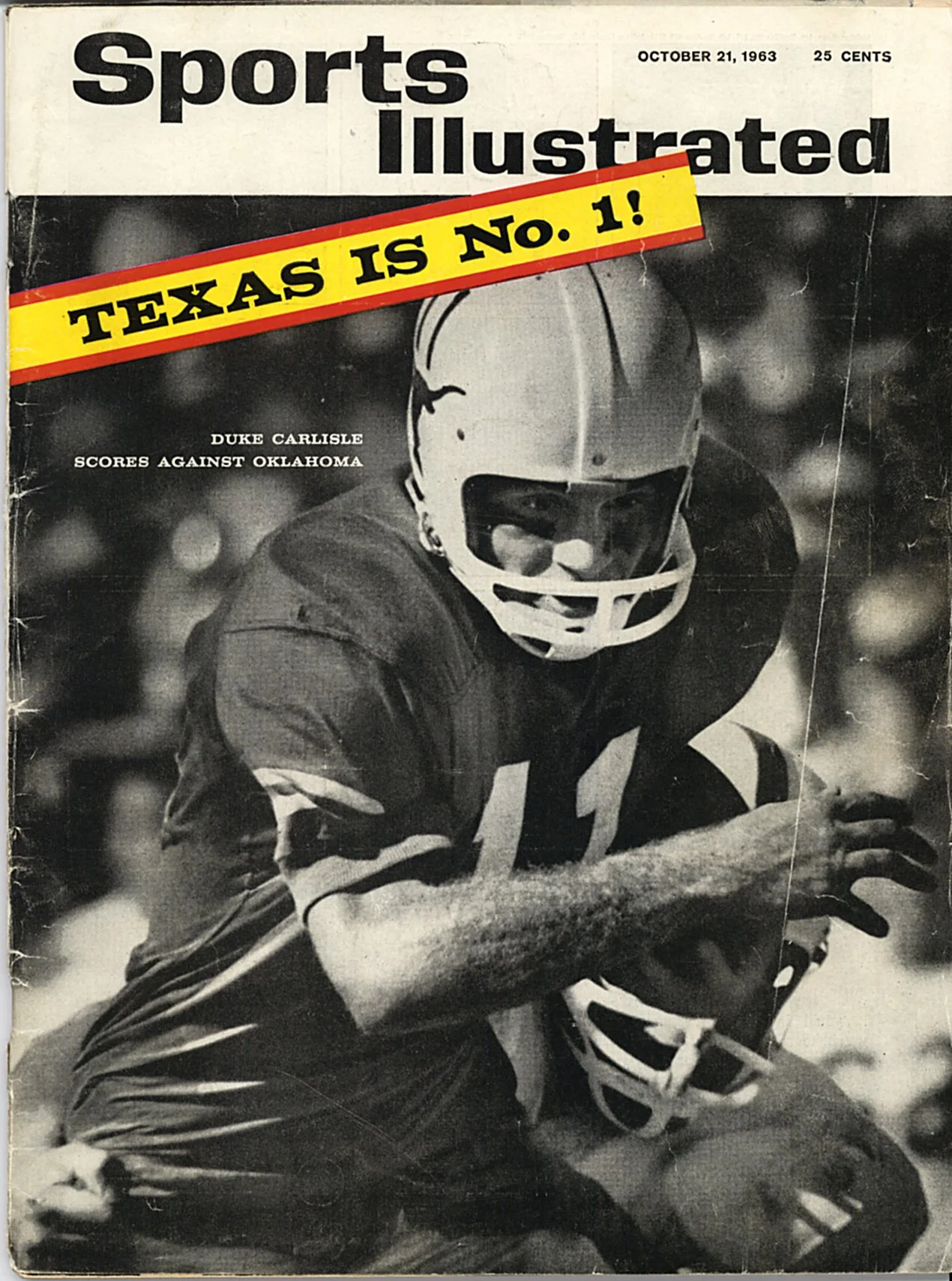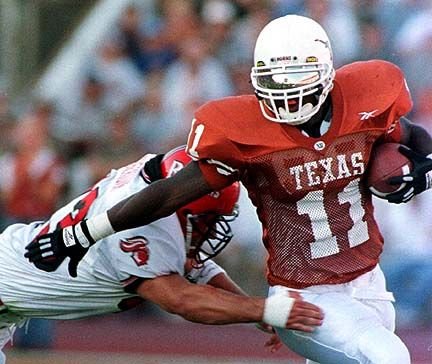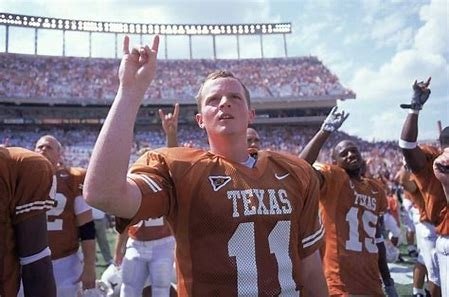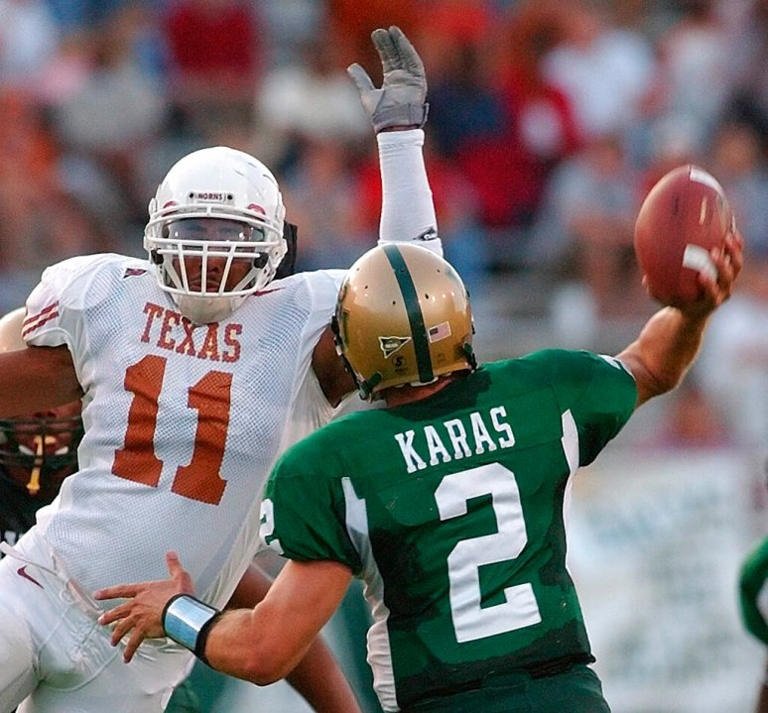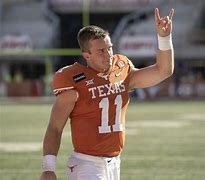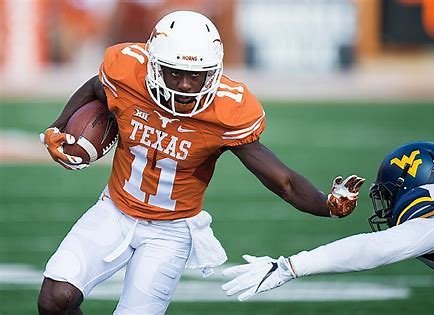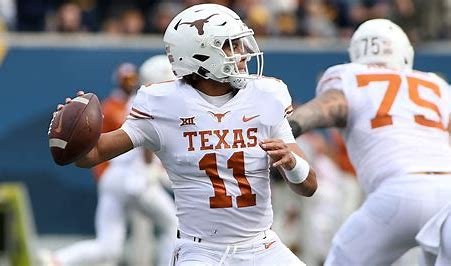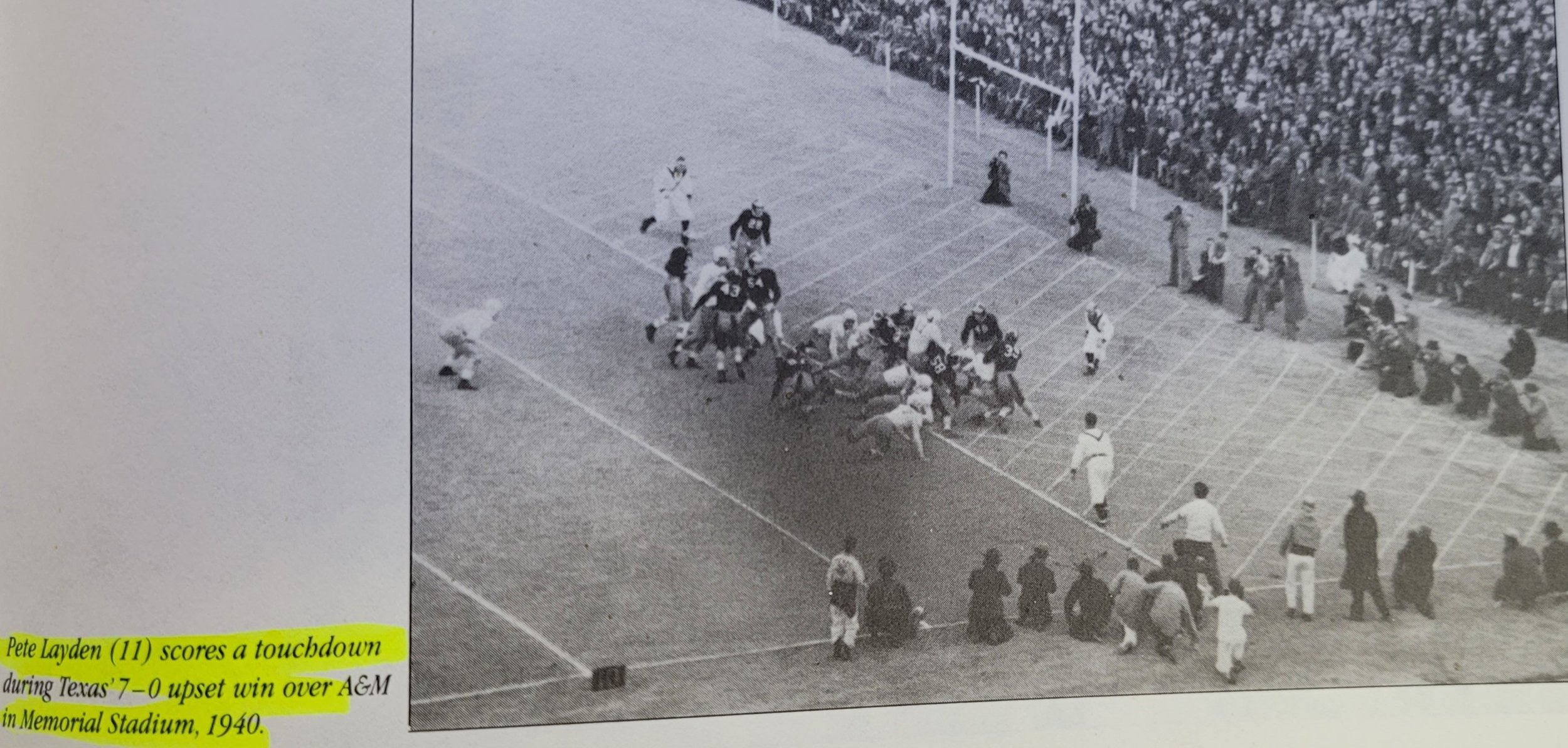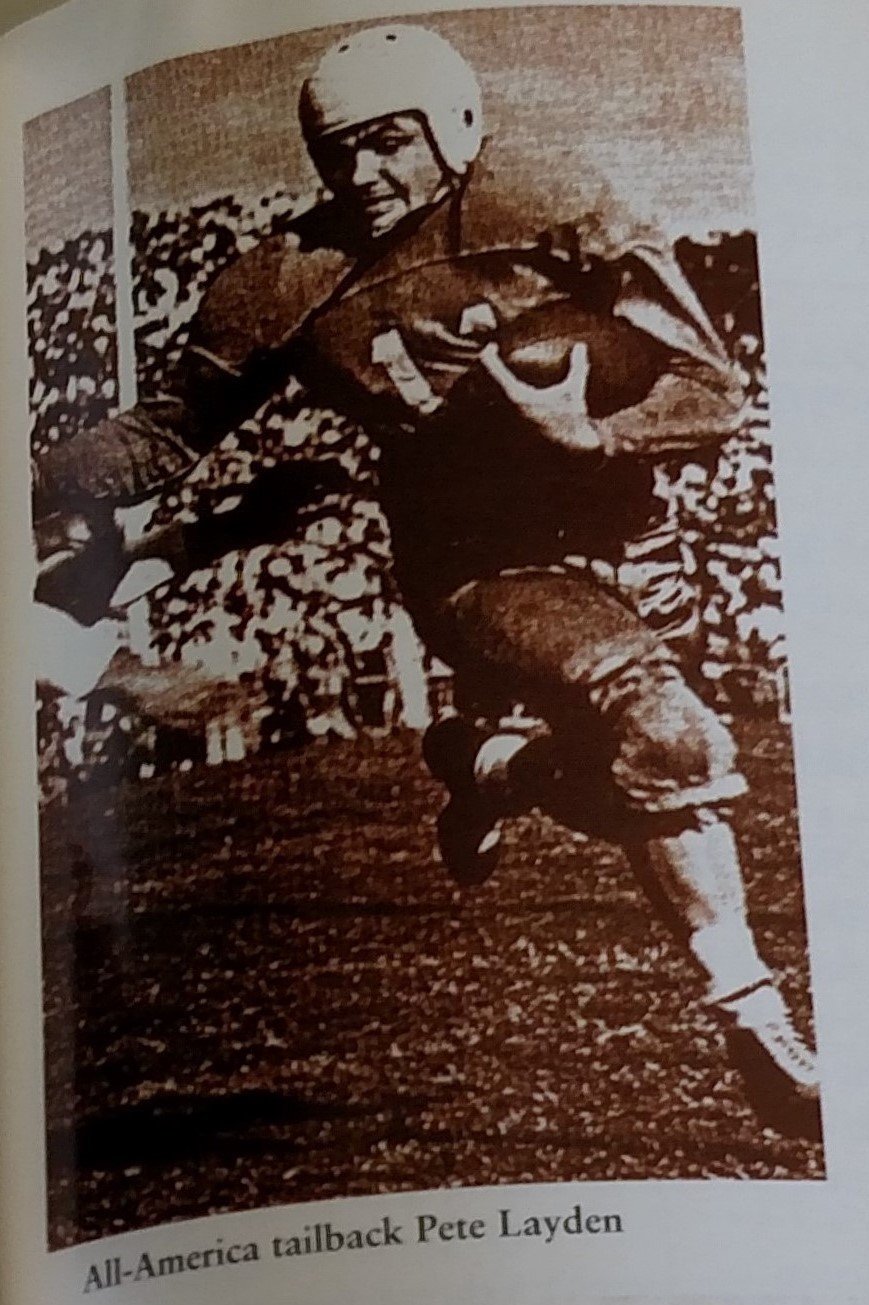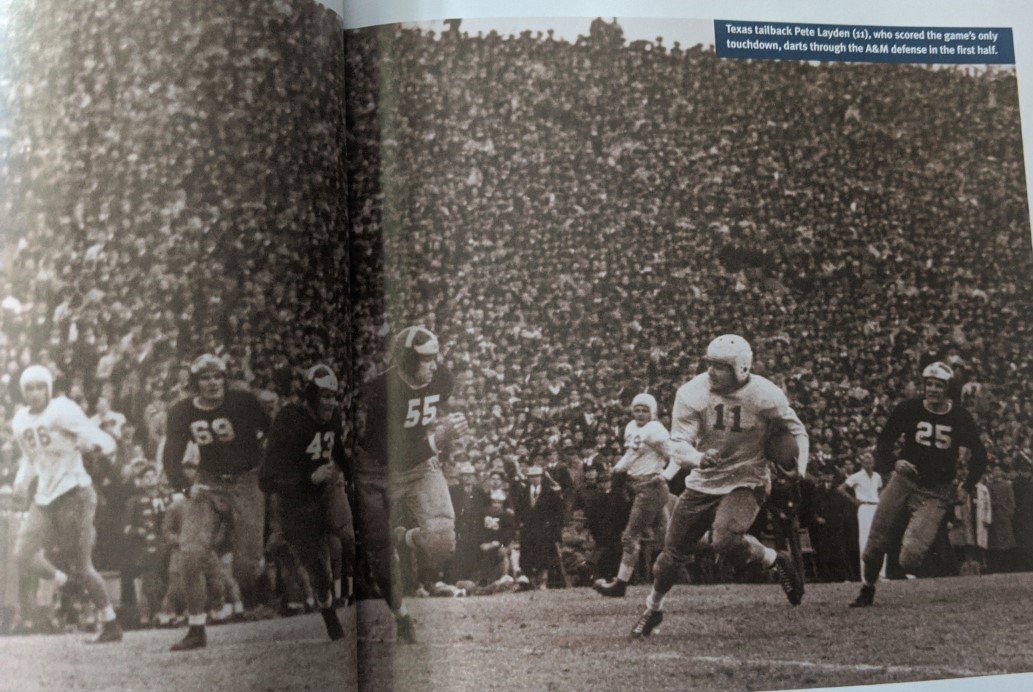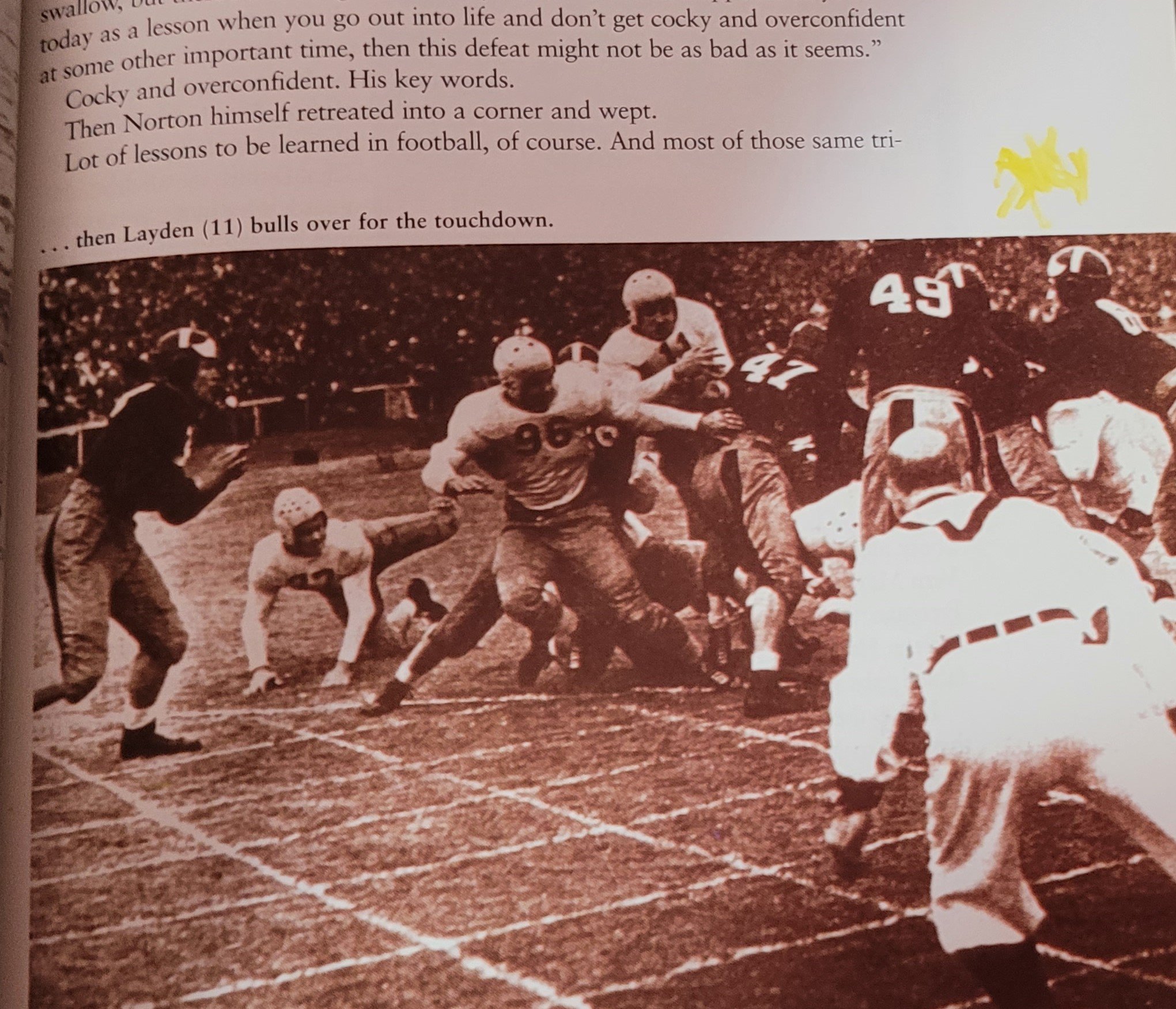Lucky Longhorn Number: Yo Eleven
by Larry Carlson (lc13@txstate.edu)
If you've played craps in Vega$, you are likely familiar with the "yo eleven" bet.
It's a one-roll deal that is risky but pays 15-to-one. Not good odds but if you're a low roller like me, it's okay to throw the minimum bet out there every fifteen minutes. You hit the eleven, it's fun.
Over the years, I think I've made more money than I've lost on the "yo" bet that's shouted out to one of the stickmen, usually when a new roller is about to throw the bones.
And just about everyone knows that, like "lucky seven," eleven pays off for the table on an initial roll.
That's a long way of getting to this point: Eleven as a jersey number has been a winning number in modern (DKR forward) Longhorn football. Two certified All-America players, a national championship QB and two other all-time UT standout quarterbacks. Together, they're the overloaded "five aces."
And another sizable herd of Longhorns wearing the lucky number have been substantial contributors.
Let's start at the top. Emmet Augustus Carlisle III, better known as "Duke," reigns as UT's first national championship quarterback. A bust of Carlisle, unveiled last September (along with ones of James Street, Eddie Phillips and Vince Young) shall honor him forever outside DKR-Texas Memorial Stadium, and the Duke was there at the big ceremony last fall to smile, laugh and speak to an adoring crowd the day before the Texas-Alabama game.
Carlisle was a versatile combo of safety and quarterback who started at one or the other all three of his seasons for Royal teams that went 30-2-1 from 1961-63, a mark equaled (by the Worster Bunch of '68-'70) but never bettered for a three-year span on The Forty Acres. The thin man from Athens is perhaps best known for two late-season games in '63. His heroics went a long way to ensure a perfect 11-0 season and the Horns' first national title.
Carlisle, a two-way standout, intercepted a Don Trull pass in the Texas end zone -- intended for Lawrence Elkins, the other half of America's best pass'n'catch combo -- in the closing ticks of what became a monumental 7-0 victory over Baylor on a memorable November afternoon in the state capital.
On Jan. 1, 1964, Carlisle, in his final game for the Steers, hit TD passes of 58 and 63 yards to Phil Harris, then ran nine yards for another TD to give top-ranked Texas a 21-0 halftime lead over second-rated Navy and Heisman winner Roger Staubach. The Duke led UT in rushing, passed for more than 200 yards, almost unheard of in the era, and established a long-standing Cotton Bowl record for total offense that cool, sunny day in Dallas. The 28-6 Texas victory sealed Carlisle's burnt orange immortality. He has worn it well, as a successful businessman and author of Longhorn literature.
Push the button to fast forward roughly a quarter-century and the number eleven dice land on Errick Miron "Ricky" Williams, born and raised in San Diego, California, quite a ways from East Texas. And Ricky sported dreadlocks instead of the Carlisle-style flat-top. Williams, a starter from game one -- at Hawaii in '95 -- went on to become college football's all-time leading rusher and UT's second Heisman Trophy winner, as a senior in '98 on a Cotton Bowl champion team under first-year Texas coach Mack Brown.
By that senior year, Ricky switched to jersey number 34 (and also wore number 37 once to honor SMU legend and friend, Doak Walker, against OU) but his legacy as lucky "yo" eleven had been established.
Also lucky were Longhorn fans who had purchased number eleven jerseys to honor Williams.
Money on such jerseys -- not featuring a player's name in the pre-NIL era -- was not misspent.
Before the end of September in '98, UT's up-and-coming QB was a freckle-faced, "Opie" lookalike with the Southern Gothic literature name of Major Applewhite. The redshirt freshman from Baton Rouge led Texas to delicious wins over OU, then at Nebraska -- toppling a long, long home winning string -- then again in a last-minute win over favored Texas A&M. In that game, a sold-out Memorial Stadium crowd watched Williams break Tony Dorsett's NCAA rushing record and witnessed an epic clinic on the two-minute drill by young Applewhite. It set up a game-winning field goal by Kris Stockton.
Texas went on to beat Mississippi State and UT arch-nemesis Jackie Sherrill in the Cotton Bowl Classic.
Williams, by then the winner of the Heisman and the Doak Walker, became the number one pick of the New Orleans Saints and had a stellar NFL career that included hard times and, ultimately, a big comeback with the Miami Dolphins.
Applewhite, the Big XII Offensive Freshman of the Year, would win the Big XII Offensive MVP award as a soph in '99, as UT captured the South division. But he was felled by a severe knee injury in a season-ending Cotton Bowl loss to Arkansas, opening the door for golden boy and nationally hyped Chris Simms in 2000. Simms, by then a soph, got the majority of the starts for Texas during Applewhite's junior year, and all the regular season starts when Major was a senior in '01. Many ardent Longhorn backers were dismayed by Coach Brown's decision to go with the big blond from New Jersey.
Simms, for all his talent and productivity and even a solid beginning in the NFL, before a dangerous injury, was not a clutch player at Texas. "If you want to beat Kansas by a lot," one veteran Big XII writer told me, "Simms is your guy." But, as we all recall, the record wasn't so stout against the likes of OU or on any big stage. While Applewhite had two wins against the Sooners, Simms struck out in three games of note.
In the Big XII Title game of '01, Simms spewed four turnovers in the first half. Applewhite, seldom-used all season, came on and led a wild comeback that might have resulted in a win had it not been for a roughing-the-punter mistake by Texas in the waning moments. He then got his only senior start in the Holiday Bowl against Washington. All he did was pass for a UT record 473 yards and ignite a rally from 19 points behind, then hoist UT once more on a game-winning drive to beat the Huskies. It was a helluvan encore from the fan favorite wearing number eleven. He re-wrote the UT QB records and has since coached at Texas, Rice, Alabama, Houston and South Alabama.
While "The Major," as Brent Musburger always referred to him, was tidily wrapping his collegiate playing days, another Texas number eleven, with numerals now crazily doled out on both sides of the ball, was rocking along as a kickass freshman 'baller. Derrick Johnson of Waco was UT's leading tackler in the woolly, 47-43 Major-led Holiday victory in Ricky Williams' hometown. And he was just getting started.
More than two decades later, DJ is solidified as certifiably one of the best defenders in Longhorn annals.
Johnson, a sure and punishing tackler, became a rare, rare three-time All-Conference player and was twice an All-America choice. Johnson, the senior defensive ringleader of the '04 squad that beat Michigan in UT's first Rose Bowl, won the Dick Butkus Award and the Bronko Nagurski Trophy. Blessed with speed that had made him a state qualifier in the 100-meter dash as a schoolboy, Johnson went on to an outstanding NFL career with the Kansas City Chiefs. A four-time Pro Bowl pick, he is one of the Longhorns' most decorated pro players.
The latest of what I'm calling the "five aces" of number eleven fame is Westlake's Sam Ehlinger. In today's NIL daze of "buy 'em how you can, at any price," Ehlinger sadly might be the last Longhorn star to ever flash "born to be a Longhorn" cred, throwing the Hook 'em Horns sign up in well-documented photos as a tot.
Ehlinger committed to Texas in the ill-fated Charlie Strong era and became a sometimes-starter -- sharing time with Shane Buechele -- as a brash freshman for Coach Tom Herman in 2017.
Ehlinger was the winning starter for four bowl games at UT, the only man to ever set the pace for that many bowl victories. He guided Texas to wins over Missouri, Georgia, Utah and Colorado, with the first three opponents favored against Sam's Longhorns.
The old-school epitome of the All-American Boy, Ehlinger -- in spite of being the obvious leader of four winning Texas teams, was somewhat the tragic "franchise player without a franchise," at UT.
That is to say, Ehlinger often seemed to carry Texas teams upon his sturdy back, win or lose. He made his share of mistakes, especially as a young player, but he made only full-speed mistakes.
His performance in the super comeback and ongoing bloodbath that resulted in a stirring but sad four-overtime loss to OU was and shall forever remain the stuff of legend. Cliched as it sounds, those who watched know that Sam Ehlinger did indeed almost literally "will" his team to victory. But he couldn't also
play defense, and Texas succumbed, 53-45.
Then, Ehlinger, all alone, as a dying Davy Crockett Texian legend, stood firm on the floor of Cotton Bowl, surrounded by hostiles and abandoned by allies, to raise the Horns and sing "The Eyes of Texas."
When one is reminded of the Longhorn locker room sign that the Texas winning tradition shall not be entrusted to the timid or the weak, it is understood that Sam Ehlinger, number eleven, gave his all. Always.
ADDITIONAL ALL-STAR NUMBER ELEVENS (with final UT season noted)
Greg Lott, (Lubbock High) UT '67
The back-up QB and return man extraordinaire took the opening kickoff back all the way against his hometown's Red Raiders in '66. And he earned immortality as the boyfriend, and long-time love interest of legendary UT beauty queen Farrah Fawcett. Admit it, you had her poster.
Paul Jette, (Devine), UT '76
Paul Jette
The savvy son of a high school coach, Jette was a reliable DB for the excellent Mike Campbell defenses at Texas in the mid-'70s, then coached at Texas and Baylor among other stops in a 25-year mentoring career.
Herkie Walls, (Garland) UT, '82
The diminutive speedster starred as a wide receiver and return man for the Longhorns. He would go on to play in the NFL, with speed that had enabled him to beat Carl Lewis and Curtis Dickey in the 60-yard (55m) race. Walls has been a pro coach in arena leagues and also taught Bible studies.
Keith Cash, (San Antonio Holmes) UT '90
Take the obvious pun. Keith and twin brother Kerry were money for the '90 SWC champs who shocked the nation. Keith's biggest career catch was a fourth-down reception from Peter Gardere, that beat OU, 14-13, in his senior season. Cash had a solid five-year career with the Kansas City Chiefs.
Jacorey Warrick, (Houston Cypress Falls) UT '16
Jacorey Warrick
Caught 30 passes for Charlie Strong's last chapter at Texas.
PJ Locke, (Beaumont Central) UT '18
Locke was a key in the Longhorn secondary and helped Texas to a Sugar Bowl championship as a senior.
He went undrafted in '19 but has earned NFL paychecks from the Denver Broncos for several seasons.
Casey Thompson, (Oklahoma City Newcastle), UT '21
Son of a former OU star, Thompson flashed greatness in relief of injured Sam Ehlinger in the '20 Alamo Bowl, firing four TD passes in the second half of a win over Colorado. He was an efficient, effective starter for most of Steve Sarkisian's first UT season, though hampered by a thumb injury. Transferred to Nebraska.
Anthony Cook (Houston Lamar) UT '22
Earned All-Big XII honorable mention last season as one of the Horns' top defenders. Cook played in sixty games in his Longhorn career.
End of Professor Larry Carlson’s article
The webmaster has added one more to Professor Carlson’s list of the #11 roll of the dice winners for the Longhorns. A Horn who was instrumental in changing the complexion of UT football under Coach Dana Bible in 1940 and 1941. Pete Layden scored the touchdown against the Texas Aggies in 1940 to ruin their Rose Bowl bid and a chance to win back-to-back national championships. Then in the 1941 game, with the help of the burnt orange hex candles, Layden helped break the Kyle field winning streak jinx that started in 1921.
Layden slide show with 4 photos is below.

